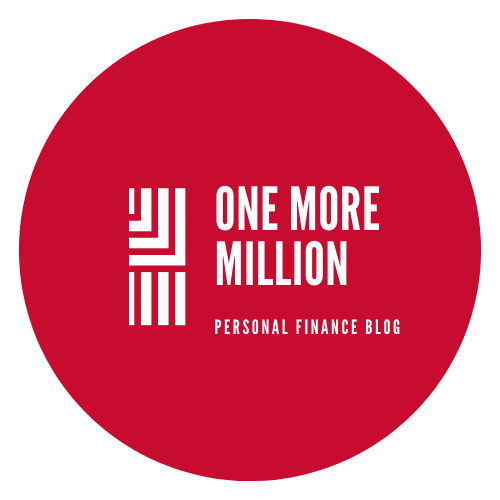Learn about ‘budgeting for success’ and ‘how to create a budget’ to improve your financial health.”
"A budget is telling your money where to go instead of wondering where it went." - Dave Ramsey
Budgeting is the cornerstone of financial success. It’s the tool that enables us to direct our money in a way that helps us achieve our financial goals. Whether you’re saving for a vacation, planning for retirement, or simply trying to make your paycheck last the entire month, a well-planned budget can be your roadmap to financial freedom. I believe debt is the biggest threat to your financial freedom journey and having a budget can help you get debt free. According to Experian, In 2022 an average America has $101,915 in debt up 5.8% from $96,371 in 2021
Basics of Budgeting for Success
Budgeting is about more than just tracking every penny spent. It’s about understanding your income, controlling your expenses, and making conscious decisions about where your money goes. It’s about setting financial goals and making a plan to achieve them.
One of the most effective ways to budget is to use a budgeting method that fits your lifestyle. There are several methods to choose from:
- Zero-Based Budget: This method involves making your income minus your expenses equal to zero. In other words, every dollar has a job, whether it’s going towards bills, savings, or discretionary spending.
- Envelope System: This is a method where you allocate cash for different categories of your budget into separate envelopes. Once the money in an envelope is gone, you can’t spend any more in that category until the next budgeting period.
- Pay-Yourself-First Budget: With this method, you set aside money for savings or investments before you pay your bills and other expenses. This ensures that you’re prioritizing your financial goals.
- 50/30/20 Budget: This budgeting rule suggests that you allocate 50% of your income to needs, 30% to wants, and 20% to savings and debt repayment. It’s a simple and flexible method that can work for many people.
Remember, the successful budgeting method for you depends on your personal financial situation and goals. It may take some trial and error to find the budgeting method that works best for you. I am personally a big fan of the Pay-Yourself-First and 50/30/20 methods and in this post, we will explain both of these methods.
How to Create a Budget That Works Using Pay-Yourself-First Method
The “Pay-Yourself-First” method is a popular budgeting strategy that prioritizes saving and investing. The idea is simple: before you pay your bills, buy groceries, or do anything else with your money, you set aside a portion of your income to go directly into savings or investments.
The amount you decide to pay yourself first can be a fixed amount or a percentage of your income, depending on what works best for your financial situation and goals. This method ensures that you’re consistently saving money each month and helps to build a habit of saving.
The money you pay yourself first can go into various places such as an emergency fund, retirement account, or other savings or investment accounts. The key is to make this automatic, so you don’t even have to think about it. This can often be done through automatic transfers with your bank.
The Pay-Yourself-First method is a powerful way to ensure you’re making progress towards your financial goals, whether that’s building an emergency fund, saving for a down payment on a house, or investing for retirement. It puts the focus on saving for the future, rather than just managing current expenses.
Understanding the 50/30/20 Budget Rule
The 50/30/20 rule, popularized by U.S. Senator Elizabeth Warren in her book “All Your Worth“, is a simple yet effective budgeting method. According to this rule, you should allocate:
- 50% of your post-tax income for necessary expenses, such as rent, groceries, utilities, and other bills.
- 30% for discretionary expenses, which are non-essential items and activities like dining out, entertainment, shopping, etc.
- 20% should be saved or invested for your future.

This rule is a good starting point for budgeting, but it’s not one-size-fits-all. Depending on your financial goals and lifestyle, you might need to adjust these percentages. For instance, if you’re aiming for financial freedom, you might want to save or invest more than 20% of your income.
7 Keys to Effective Budgeting for Achieving Financial Freedom
- Set Clear Financial Goals: Whether it’s paying off debt, saving for a vacation, or building an emergency fund, having clear financial goals can guide your budgeting process.
- Choose a Budgeting Method That Suits You: The best budgeting method for you depends on your income, expenses, and personal preferences.
- Track Your Income and Expenses: Use a budgeting app or spreadsheet to record all your income and expenses. This will give you a clear picture of your financial situation.
- Be Realistic: Don’t set your budget too tight. Make sure it’s realistic and achievable. It is important to create a budget that works for your needs.
- Adjust Your Budget as Needed: Your income and expenses will change over time, so it’s important to review and adjust your budget regularly.
- Save for Unexpected Expenses: Include a category in your budget for unexpected expenses. This can help you avoid debt and financial stress.
- Make It a Habit: Budgeting is most successful when it’s done consistently. Make it a part of your routine.

5 Tips for a Successful Budget
- Use Online Tools and Apps: There are many online tools and apps that can help you track your income and expenses, set financial goals, and create a budget.
- Automate Your Savings: Set up automatic transfers to your savings account. This can make saving money easier and more consistent.
- Prioritize Paying Off Debt: If you have debt, include a category in your budget for debt repayment. Consider using strategies like the debt snowball or debt avalanche methods.
- Include Fun Money in Your Budget: Budgeting doesn’t mean you can’t have fun. Include a category in your budget for entertainment, dining out, or other activities you enjoy.
- Review Your Budget Regularly: Make sure to review your budget regularly to ensure it’s still working for you. Adjust as necessary.
Maintaining Motivation and Consistency for Successful Budgeting
Staying motivated while budgeting can be challenging, especially when faced with financial setbacks or temptations. Here are a few strategies to help you stay on track:
- Set Clear Financial Goals: Having a clear goal in mind can keep you motivated. Whether it’s paying off debt, saving for a vacation, or building an emergency fund, keep your eye on the prize[^3^].
- Celebrate Small Wins: Reached a savings goal? Paid off a credit card? Celebrate these small victories. They’re proof that your budget is working.
- Make Room for Fun: Budgeting doesn’t mean you can’t enjoy life. Make sure to include room in your budget for fun and entertainment.
- Use a Budgeting App: A budgeting app can make the process easier and more enjoyable. Plus, many apps offer features like goal tracking and spending alerts to keep you on track. I personally use Intuit’s Mint and love the easy-to-use interface and its reporting.
Common Mistakes to Avoid
- Not Tracking Expenses: If you’re not tracking your expenses, you won’t know where your money is going. Make sure to record all your expenses, no matter how small.
- Forgetting About Irregular Expenses: Don’t forget about expenses that don’t occur monthly, like annual insurance premiums or car maintenance.
- Setting Unrealistic Goals: Be realistic about what you can achieve with your budget. Setting unrealistic goals can lead to frustration and may cause you to give up on budgeting altogether.
- Not Adjusting Your Budget: Your budget should change as your life changes. Make sure to review and adjust your budget regularly.
The Importance of Budgeting in Your Financial Freedom Journey
Budgeting is more than just a tool for managing your money. It’s a crucial step on the journey to financial freedom. A well-planned budget can help you achieve your financial goals, avoid debt, and build wealth. As personal finance coach Suze Orman says, “Just because you can afford it doesn’t mean you should buy it.” Wise budgeting allows you to make smart decisions about your money, ensuring that every penny is put to good use.
Remember, budgeting is not about restriction. It’s about making conscious decisions about your money and living within your means. As Warren Buffet wisely said, “Do not save what is left after spending; instead spend what is left after saving.“
FAQs
The 50/30/20 rule is a simple budgeting method where 50% of your post-tax income goes towards necessary expenses, 30% towards discretionary expenses, and 20% is saved or invested for your future.
Some effective tips include using online tools and apps, automating your savings, prioritizing debt repayment, including fun money in your budget, and regularly reviewing your budget.
Common mistakes include not tracking expenses, forgetting about irregular expenses, setting unrealistic goals, and not adjusting your budget as your life changes.
Budgeting is a crucial step on the journey to financial freedom. It helps you achieve your financial goals, avoid debt, and build wealth by making conscious decisions about your money.



